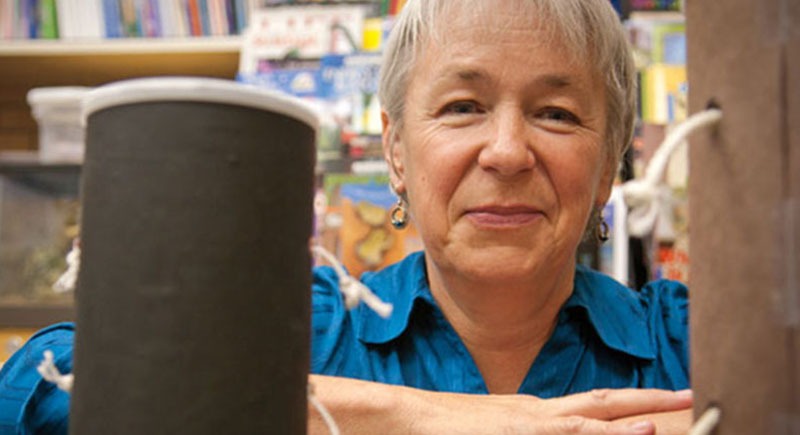
May 6, 2020 WSU Tri-Cities educators go low tech for high impact
As the novel coronavirus has required a heavy reliance on technology and access to online learning, educators at Washington State University Tri-Cities are encouraging K-12 students and their families to head the other direction, with a new series of low-tech teaching tips.
Each tip is printed on a flyer that also bears the message: “The little moments that make a big impact.” The flyers are designed as a quick resource for families in their role as educators to their homebound children.
Even the delivery mechanism is low-tech: school lunches. The flyers are given to local schools that then have the option of handing them out with the school lunch program.
These teaching tips include things like how to ask better questions of your child to elicit more meaningful conversation.
“The big idea of ‘ask, don’t tell’ reminds me, every day, to ask questions about my son’s thinking,” said John Mancinelli, executive director of Educational Outreach and Partnerships at WSU Tri-Cities. “During our talks, it was clear that my son was less eager to hear what I thought as much as he wanted to share his thoughts.”

One flyer, meant for grades K-3, is called “wonderings” and encourages kids and families to just take a walk around the neighborhood or local park, having the child choose 4-5 small items from the natural world, such as rocks, plants, flowers, etc. After the walk, the child can look at each item carefully and come up with things that they “wonder about” with each. They then try to come up with answers.
“Through this activity, the child and family are modeling true science: asking questions and finding answers,” said Judy Morrison, associate professor of science education.
Another flyer for grades 3-5, focuses on the moon and its path, having kids draw the moon and other objects, such as a roof or light post. The child does this every night at the same time, and after 3-4 nights of the activity, they use the following night to draw where they predict the moon will be, based on past observations. Then they see how closely they were able to predict. Once again, science modeling.
“There’s a lot more to education right now than simply logging in, seeing what online assignments are required, then doing them,” Morrison said.
It’s also a matter of equity, since currently, there is often an assumption that all students have access to the internet and the technology used to watch video lessons. WSU Tri-Cities faculty said they hope to remind people that learning isn’t limited to technology.
As an example, Morrison said that many of the helpful tips and tricks for learning are based on materials and activities commonly found at home. It can also be as simple as parents finding a quiet place in the house to study or do homework.
“We know that not every child has that option; not every learning environment is the same” she said. “But we need to recognize that we often unintentionally assume that all children have those same benefits.”
Even when households have all the benefits of technology, Mancinelli said it’s not always realistic to expect that things will work smoothly. There can easily be technical and logistical issues.
“Some families have four or more people online at one time, making access to technology and the internet difficult,” he said. “Then, when you consider families that don’t have the technology or the internet, the problem is compounded. These teaching tips are meant to address the problems of the new learning environment.”
At this point, Mancinelli said there’s no way of knowing how many flyers have been distributed. It’s just too early to know. But he said that all contacts thus far have been supportive, which isn’t surprising based on current relationships.
“Our faculty are always highly engaged with the regional school districts, teachers, and the general public,” he said. “Many serve on district and parent committees and offer their professional services regularly.”
Each teaching tip flyer has photos and names of all faculty members in WSU Tri-Cities’ College of Education. And for good cause.
“Our pictures remind folks that we are here and a resource,” Mancinelli said, “and since we have our names on Teaching Tips, they can connect names and faces.”
In addition to school lunches, all the tips are available online.





